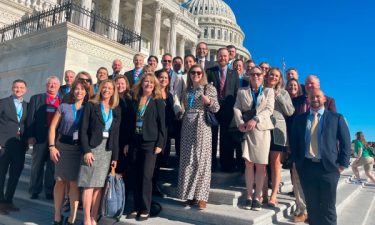Counting Eyeballs and Working Backwards
by Michael Dean, DH
When you think about STEM, it’s easy to think of vocations in engineering, health sciences, or physics. You likely don’t consider the marketing and advertising field, but statistics, analysis and the scientific method are important concepts utilized every day in our world.
One day we might be testing a sample commercial about the dangers of opioid addiction with a small group of our target audience to see if the message will encourage them to drop off unused medications at a safe take-bake location for the Washington State Health Care Authority. If the sample commercial falls flat, we may test different variables to understand what the message can include that will most likely achieve our desired results.
Another day, we might be helping Tree Top understand how much advertising they should plan to budget next year to increase their apple juice sales in a new market by conducting an analysis of different cities’ demographic make-up and cross-referencing that with media costs.
One of the more challenging functions of marketing teams is taking future visions of their organizations or businesses and molding them into reality. The tricky part of the job is to understand feasibility, shape expectations and predict the effort it will take to make these dreams real. Good marketers do this in a couple different ways.
The most common way is to compare the ask to something that exists from a competitor or something their organization has done before. However, what happens when an organization is trying something new and there’s no historically similar baseline to compare it against? It’s these types of situations where good marketers can differentiate themselves through creative estimations and showcase their problem-solving skills.
Borrowing a method from legendary physicist Enrico Fermi, who created the first nuclear reactor beneath the University of Chicago football field, one can learn to estimate just about anything with limited information with impressive accuracy. Fermi is famous for including outlandish questions on physics exams like, “How many piano tuners are there in Chicago?”
The key to answering questions like these, where no previous baseline exists, is to break the problem down to smaller problems and make rough, common-sense estimates with what you know. To understand how many piano tuners are in Chicago, you must first ask the questions:
What is the population of Chicago?
What proportion of people own a piano?
How often is a piano tuned?
How many pianos can each tuner care for?
How much time does it take to tune a piano?
None of these individual answers have to be incredibly accurate to get a reasonable estimate. The ultimate lesson is that detailed prior knowledge is less important than your way of thinking. Try it out for yourself. By the way, we estimate there are ~225 piano tuners in Chicago.
Next time you have a new opportunity in front of you, begin sizing it up with some figures you know and work your way through rough estimations to help understand its feasibility and required effort. When partnering with an organization on their advertising campaigns, we usually start with:
How many people do we need to reach with this message?
How many times do we need to repeat it for them to remember that message?
How much will it cost to serve an ad that many times on the channels they pay attention to?
How long before people get tired of seeing an ad and they block it out?
What proportion of people who see our ad will visit our website?
What proportion of people who visit our website will buy/register/call us?
We know marketing is not typically thought of as a traditional STEM career path, but good marketers have a strong understanding and ability to deploy some the same concepts traditionally associated with STEM to effectively understand problems and create solutions in their field.




